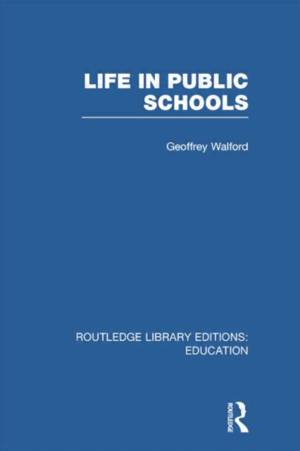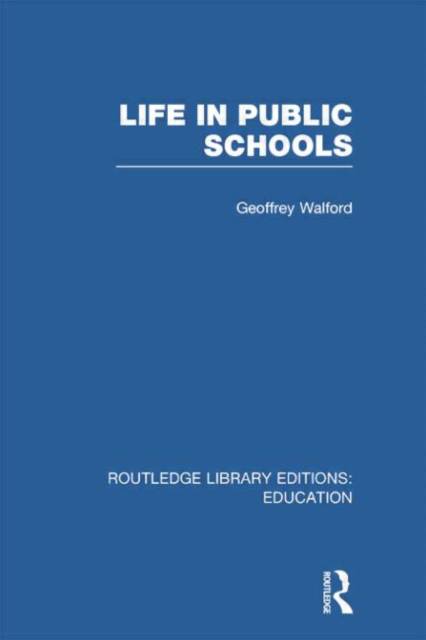
- Afhalen na 1 uur in een winkel met voorraad
- Gratis thuislevering in België vanaf € 30
- Ruim aanbod met 7 miljoen producten
- Afhalen na 1 uur in een winkel met voorraad
- Gratis thuislevering in België vanaf € 30
- Ruim aanbod met 7 miljoen producten
Omschrijving
Britain's public (that is, its major independent) schools have a conspicuous role in the country's social system, and as a result are the subject of a long-standing political debate. The discussion is generally founded on a stereotyped image of what these school may have been like in the 1950s - this books shows how they were in the late 1980s. It is based on fieldwork in two major public boarding schools which the author conducted over an extended period, and draws on interviews, observation and documentary sources to establish a picture of what public school life is actually like for pupils and staff. Since the schools were predominantly male preserves, the major part of the book describes the social world and experiences of boys and school-masters. An important section of the book, however, discusses the introduction of girl pupils, the experiences of female teachers and the way schoolmasters' wives tend to be drawn into their husbands' work.
Geoffrey Walford's conclusions about life in public schools differ considerably from traditional expectations. At the same time he asks whether there really has been a 'public school revolution'. His book makes an important contribution to our knowledge of public schools, to debates in the sociology of education and to the issues of abolishing or extending the independent sector.
Specificaties
Betrokkenen
- Auteur(s):
- Uitgeverij:
Inhoud
- Aantal bladzijden:
- 4
- Taal:
- Engels
- Reeks:
Eigenschappen
- Productcode (EAN):
- 9780415753043
- Verschijningsdatum:
- 10/04/2014
- Uitvoering:
- Paperback
- Formaat:
- Trade paperback (VS)
- Afmetingen:
- 156 mm x 233 mm
- Gewicht:
- 407 g

Alleen bij Standaard Boekhandel
Beoordelingen
We publiceren alleen reviews die voldoen aan de voorwaarden voor reviews. Bekijk onze voorwaarden voor reviews.











